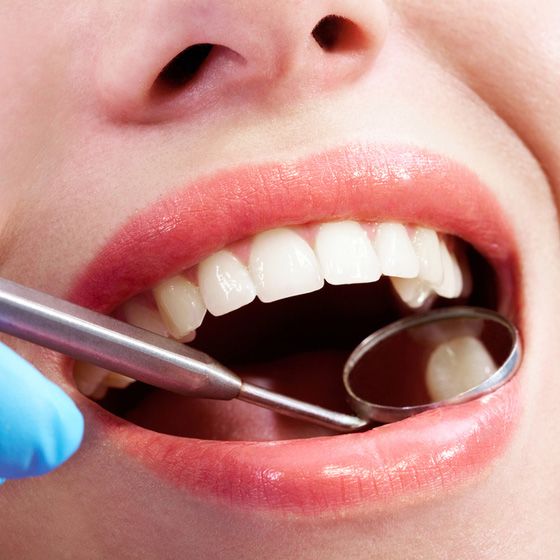The Dangers of Dry Mouth
 Stress, anxiety, and depression can cause a person’s mouth to feel dry. However, chronic dry mouth is a potentially harmful condition that requires treatment to deter its negative health effects. The older we get, the more prone we are to dry mouth, a condition in which saliva production decreases. With restorative dentistry, we can treat the clinical condition known as xerostomia, or dry mouth. To learn more about dry mouth treatment, contact our Birmingham practice today.
Stress, anxiety, and depression can cause a person’s mouth to feel dry. However, chronic dry mouth is a potentially harmful condition that requires treatment to deter its negative health effects. The older we get, the more prone we are to dry mouth, a condition in which saliva production decreases. With restorative dentistry, we can treat the clinical condition known as xerostomia, or dry mouth. To learn more about dry mouth treatment, contact our Birmingham practice today.
Symptoms of Dry Mouth
If your mouth feels sticky, hot, or you have a dry, rough tongue, you might suffer from xerostomia. Saliva initiates food digestion, regulates antimicrobial activity in the mouth, keeps the mouth clean, balances pH, offers lubrication, and even remineralizes teeth. Patients with dry mouth experience discomfort in the soft tissues of the oral cavity, and sometimes speaking or swallowing can be difficult. A sore throat, burning mouth, and dry nasal passages are common. Denture patients with xerostomia may develop sores on the gums. Dry mouth can also cause foods to taste different, make the tongue hurt, and lead to increased occurrence of cavities. Dryness can cause gland enlargement or infection, lip swelling, bad breath (halitosis), and cracking of the oral tissues, which may result in infection. People with dry mouth often crave water, even during the night.
Keep in mind, Alzheimer’s patients and stroke survivors may think they have dry mouth because they cannot recognize their mouth being sufficiently moist.
Causes of Dry Mouth
Medications, some diseases such as Sjogren’s syndrome (SS), and cancer therapy can contribute to the development of dry mouth, which is actually a symptom or condition, not a disease.
Dangers of Dry Mouth
Impaired saliva production leads to a host of dental and overall health problems. Because saliva cleans the mouth and remineralizes teeth, lack of sufficient saliva encourages cavity development and acid erosion. Gum disease and tooth loss are common results of xerostomia, as well. Thrush, an oral yeast infection (oral candidiasis), may also accompany dry mouth. Digestion can suffer, as well.
Home Remedies to Prevent Dry Mouth
- Avoid mouthwashes with alcohol, as alcohol causes dryness
- Avoid toothpaste with sodium lauryl sulfate, as it promotes dryness
- Avoid caffeine, which contributes to dryness
- Avoid tobacco and alcoholic beverages
- Use sugar-free gum or lozenges to stimulate saliva production
- Drink 8 to 10 glasses of pure water each day
- Keep a humidifier on in your bedroom while you sleep
- If your mouth is sore, avoid spicy or salty foods
Stronger Treatment
If the above tips do not resolve your dry mouth condition, you may need artificial saliva, which is available at drug stores. Changing your medications may be an option, so you should consult your prescribing physicians about your dry mouth. Medication is also available to help patients produce saliva at a greater rate. Dr. Gooch will discuss your concerns and symptoms, examine your mouth, and make practical recommendations for treatment.
A Professional Opinion
Any dental health concern warrants a professional assessment and opinion, so contact Dr. Gooch’s office today to schedule an appointment. If you suffer from xerostomia, he can work with you to increase saliva production and reduce your risk for oral infections, increased cavities, and discomfort.



